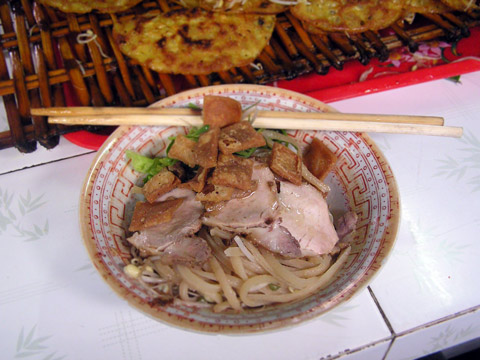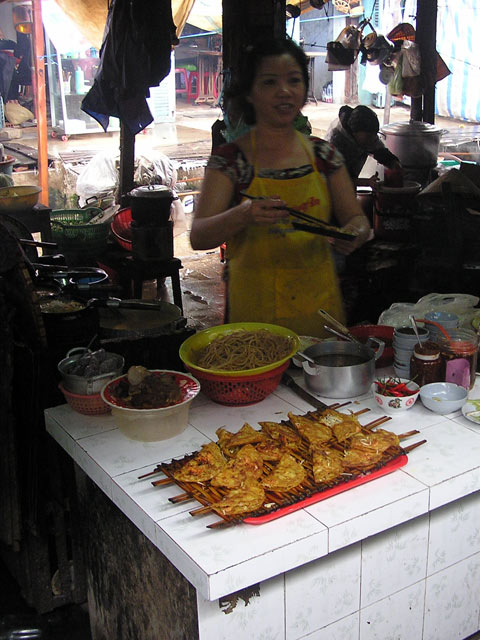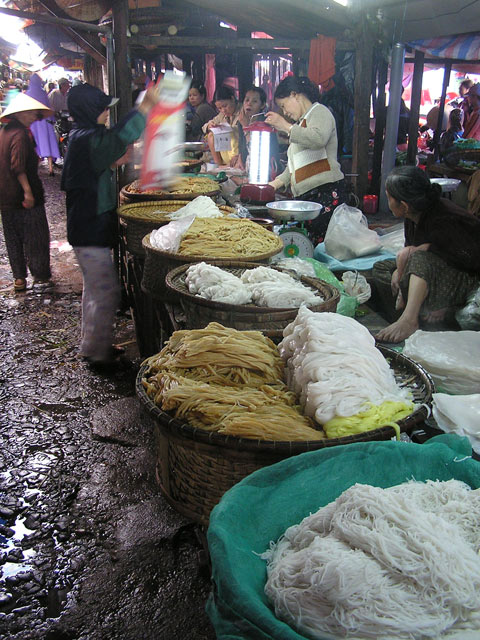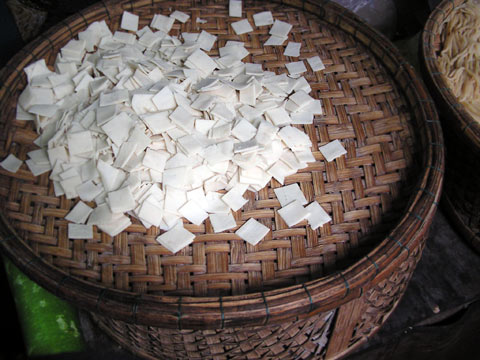Hội An in Vietnam openly pimps out its regional specialties with flagrant disregard to public taste, be it inferior tailoring, Vina-Franco-Sino-Japanese architecture or local food. The tourist-focussed restaurants that don’t offer bland facsimiles of hoanh thanh (wantons, generally fried), banh beo/banh vac (a steamed rice-flour wonton) and cao lau as an incongruous and brazen set menu are thin on the ground; the 60,000 dong carte du jour de rigueur.
Good cao lau is a pork battleground with slices of char siu-style roast pork, lard-heavy croutons and noodles, and a thin porcine stock fending off the intrusion of bitter fishwort and cress. Like Hoi An’s rich architectural heritage, it is hard to pick which influence came from where and whence. Unlike the buildings, it’s hard to find an exemplar; an edible equivalent of Tan Ky House.
The above cao lau was flaunted from a specialist stall on the eastern edge of Hoi An’s central market for the hours from early breakfast through late brunch alongside banh khoai, a miniature crispy omelette of egg, rice flour and turmeric filled with prawn and bean shoots. The banh khoai are rolled in a square of rice paper with a sliver of starfruit and some more fishwort, served with a peanut and sesame sauce. Their soggier cousin banh xeo is a different, but equally tasty beast.
The cao lau couldn’t be more local: every ingredient is on sale within twenty metres of the vendor, noodles for bun alongside the fatty yellow cao lau noodles. The dish’s official history dictates that the water used in the dish must be drawn from a single well in town.
Slices of crouton in their pre-deep-fried state
Price: bowl of cao lau, 10,000VND; banh khoai, 5,000VND per roll.
See Also: Noodlepie’s Cau Lau recipe



